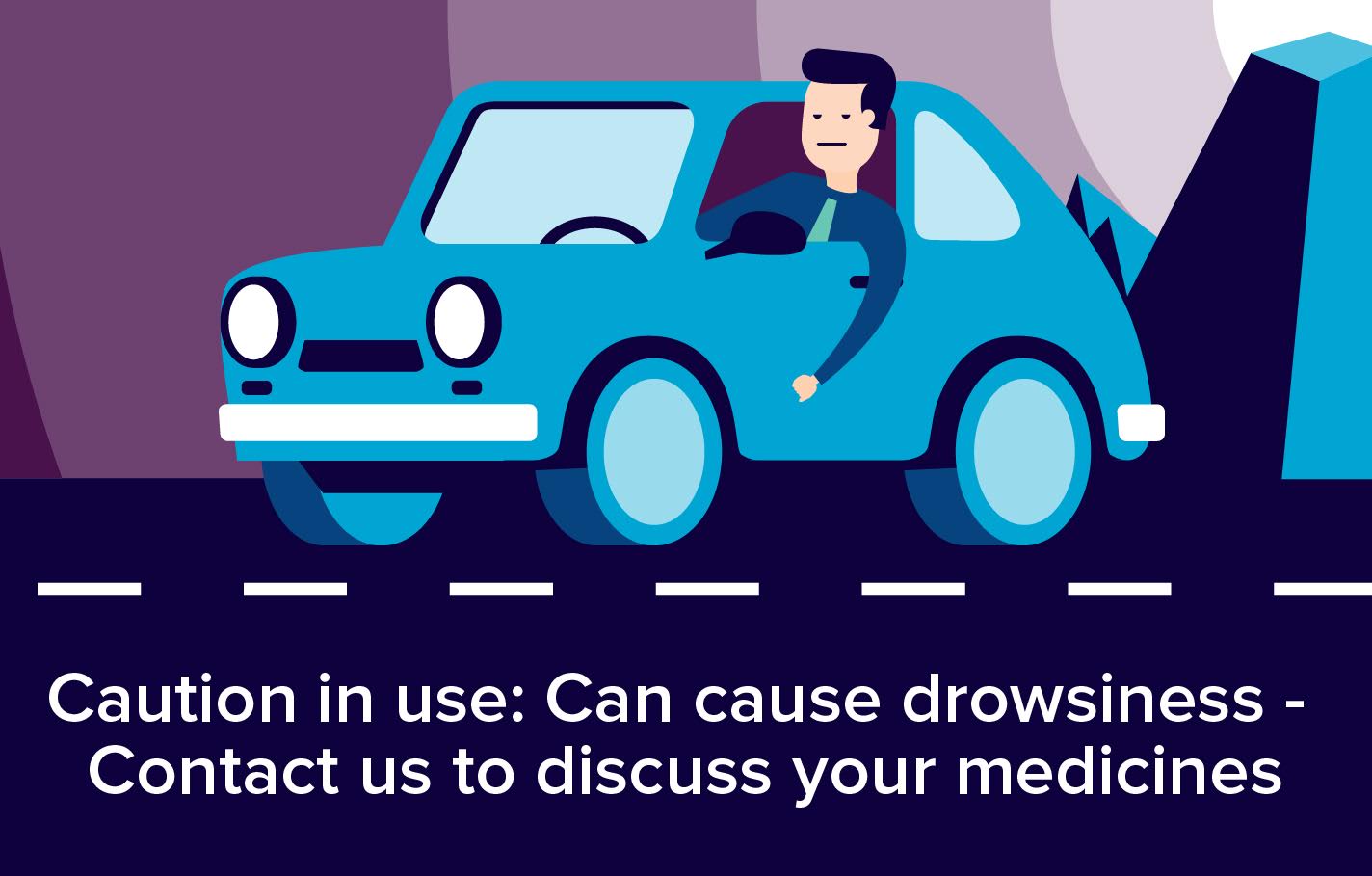Antihistamines are a type of medicine often used to treat a number of allergic health conditions.

Antihistamines are mainly used to treat seasonal allergic rhinitis (hay fever), urticaria (hives), pruritus (itching) and insect bites and stings. They may also be used to help reduce nausea and vomiting, and in the emergency treatment of anaphylaxis - a severe allergic reaction. The side-effects most commonly experienced are minor.
How do antihistamines work?
Histamine is a chemical naturally produced by various cells in your body. It has a variety of different functions. Large amounts of histamine are made in cells called mast cells in places where the body comes into contact with the outside environment. For example, in the nose, throat, lungs and skin. Here, mast cells and histamine form part of your immune defence system (whereas, in the stomach, histamine made by cells that line the stomach helps to produce acid for food digestion).
The cells of the immune system constantly monitor your blood and mucosae (membranes lining body cavities such as your mouth, nose and digestive tract) for anything that is not made by your own body. For example, germs such as bacteria or viruses. If your skin is damaged or your immune system detects a foreign substance, histamine is released from mast cells. The histamine binds to special receptors (sites) on other cells called H1 receptors. This sets off a chain reaction which causes blood vessels in the area to become slightly leaky. Specialised cells and chemicals, which defend your body, can now get access to the area. While this is a helpful response, it also causes redness, swelling and itching.
Allergic reactions such as hay fever are caused by an oversensitivity or over-reaction of the immune system to a particular allergen. An allergen is a substance that is foreign to the body and which can cause an allergic reaction in certain people. For example, pollen, dander, mold, some germs. In most people, the immune reaction to these foreign substances is normal and appropriate. But in allergic people, it is excessive. For example, in people with hay fever, contact with pollen in the nose, throat and eyes triggers the mast cells there to release much more histamine than normal. This excessive release of histamine produces the associated symptoms of itching, swelling, runny eyes, etc.
Antihistamines work by physically blocking the H1 receptors, stopping histamine from reaching its target. This decreases your body's reaction to foreign substances (allergens) and therefore helps to reduce the troublesome symptoms associated with allergy.
Antihistamines are also used in the treatment of nausea and vomiting. However, the exact way that they ease these symptoms is not fully understood. The brain has several key areas which control vomiting. It is thought that antihistamines block H1 receptors in the area of the brain which creates nausea in response to chemicals in the body.
Some antihistamines may also have what is known as an antimuscarinic effect. This means that the drug can also block another type of receptor found on the surface of certain cells. If these receptors are affected, you may experience some of the side-effects associated with antihistamines, such as dry mouth, blurred vision and retention of urine. These effects are mainly caused by the older first-generation antihistamines which are described below.
Are there any side-effects?
Most people who take antihistamines do not have any serious side-effects. If side-effects do occur, they are usually minor. The most common are:
- Drowsiness.
- Headache.
- Dizziness.
- Agitation.
- Dry mouth.
- Blurred vision.
- Urinary retention (difficulty passing urine).
- Gastrointestinal discomfort (stomach and gut upsets).
Various other drugs sometimes interact with antihistamines. For example, some antidepressants and some antifungal drugs. Therefore, if you are taking other medication, before taking an antihistamine check with your doctor or pharmacist to see if there is a risk of an interaction. If you are taking an antihistamine you should avoid alcohol, as this may make drowsiness worse.
For a full list of all the side-effects and possible interactions associated with your drug, consult the leaflet that comes with your medication.
References:
http://www.patient.co.uk/health/antihistamines
http://www.nhs.uk/Conditions/Antihistamines/Pages/Introduction.aspx


